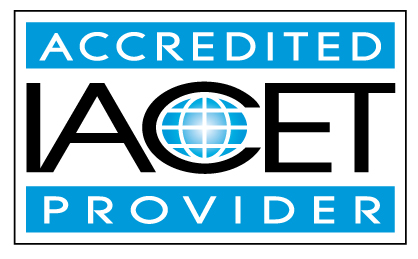Montessori Assistant Training
This self-paced online training program equips individuals with the foundational knowledge and skills to excel as Montessori classroom assistants.
Understanding child development is crucial for supporting each child's growth. This course equips child care providers with knowledge of child development theories and how to create a Montessori environment.
Participants will learn the Montessori philosophy, how to set up a classroom that fosters independence, and effective communication strategies for working with children, families, and colleagues.
The course also covers safety procedures, health practices, and cultural competency to ensure a positive and inclusive learning environment for all children.
By the end of this training, the learner will be able to:
- Demonstrate knowledge of appropriate child abuse reporting process
- Identify strategies for effective communication with families.
- Identify and contemplate bias and explore anti-bias approaches that support working with children and families.
- Identify factors that may influence learning for a child in the infant/toddler environment.
- Identify factors that may influence learning for a child in the preschool environment.
- Identify appropriate practices for teacher- and child-directed activities.
- Demonstrate knowledge of how setting up the environment can impact accessibility for all children.
- List examples ways to incorporate inclusion and equity in the classroom
- Identify the difference between teacher-/child-directed activities.
- Demonstrate an understanding of how to conduct objective and accurate observations.
- Identify the components of active listening skills.
- Demonstrate an understanding of approaching parents as equal partners in learning.
- Demonstrate an understanding of how to provide an environment that offers choices.
- Demonstrate an understanding of the most effective way to listen to a child.
- Explain the consequences for children experiencing negative interactions and vocal tones in the classroom.
- Describe positive discipline strategies to use in the classroom.
- Identify practices for managing Illnesses, diseases, allergies, and medication in child care.
- Identify important safety procedures when transporting children
- Identify safe practices in the prevention of and response to food and other allergies in the childcare environment.
- Describe the use of safe sleep practices.
- Define culture and cultural competency
- Define developmental domains.
- Recognize the importance of a positive and respectful attitude in working with all children and their families.
- List which professions are mandated reporters.
- Identify ways to interact respectfully and appropriately in a variety of cultural contexts
- Identify theory and theorist in relation to child development.
- Identify the differences in major theories.
- Identify similarities between major theories.
- Define the term inclusion and how it relates to the child care environment and practice for all ages.
- Identify the stages and milestones of development from birth to age 2.
- Demonstrate an understanding of teacher vs. child directed activities.
- Identify different types of barriers for mixed ages with disabilities and ways to adapt curriculum to fit their needs.
- Demonstrate an understanding of how positive guidance promotes sound social and emotional development.
- Demonstrate how to develop policies and procedures that promote good hygiene
- Identify strategies to listen while withholding judgement about the new or unfamiliar
- Explain the importance of two-way communication.
- Identify strategies to ensure appropriate infant and toddler supervision.
- Identify stages and milestones of development for ages 1 to 5
- Demonstrate an understanding of the Montessori philosophy and Maria Montessori's contributions to education.
- Demonstrate an understanding of the historical context of the Montessori method
- Identify the 5 Core Principles of the Montessori Method
- Identify the 5 Core Components of Montessori Education
- Describe the five key learning areas of the Montessori classroom and explain the purpose of each.
- Demonstrate an understanding of Montessori materials and how they are used in the classroom.
- Describe observational techniques and their purpose in the Montessori classroom.
- Describe the functions and features of the Prepared Environment in relation to Montessori Education
- Describe the Planes of Development in regards to Montessori Education
- Demonstrate an understanding of the specific role and responsibilities of a Montessori Assistant.
- Describe the Montessori Assistant's approach to communication with children.
- Identify the importance of child nutrition and nutrition training for staff in childcare.
- Recognize the importance of observing and gathering information related to children and youth's development.
- Define the term multiculturalism and how it relates to the child's environment.
- Recognize the importance of maintaining confidentiality and privacy in communication with families.
- Define Building and Physical Premises Safety.
- Distinguish appropriate indoor safety concerns
- Distinguish appropriate outdoor safety concerns
- Demonstrate an understanding of diverse perspectives, and navigate the ambiguity and complexity that comes with that.
- Describe the importance of responding sensitively to differences in individual communication styles.
- Demonstrate an understanding of the value and importance of complex characteristics of children’s families and communities
- Demonstrate communication skills that enable intercultural communication, including effective listening skills
- List the steps to complete a report on abuse and neglect.
- Demonstrate an understanding of proper food storage and preparation.
- Identify the benefits of observation and assessment.
- Demonstrate an understanding of observational techniques that result in accurate and objective observation
- Demonstrate understanding of the research done on mixed-age group instruction.
- Give examples of activities considered appropriate for mixed-age groups.
- Criteria to earn CEUs:
- Certificates are awarded when the following criteria have been met by the learner:
- Class has been paid in full
- All material has been reviewed
- All review questions and final test have been completed with a passing score of 80% or higher.
- Learning Assessment Method:
- Learners will be assessed through questions after every section is completed. Learners will not be
allowed to proceed to the next section of the training until all questions have been answered correctly.
Learners will be presented with a final test composed of true/false and multiple choice questions.
Upon successful completion of the training, learners will receive their certificate by email.
- Learning Methodology:
- Online material will be presented in the form of slides,
accompanied with speech. Videos will be used to demonstrate ideas and concepts. Charts and tables
will be used for illustration.
- Logistics/Required Technology:
- A stable internet connection is required for the completion of this course. Users are highly encouraged to take their online course on Google Chrome on either a laptop or desktop computer. Speakers and/or headphones are also required to hear speech.
- Payment Policy:
- Payments need to be made in full. No refunds will be issued after starting the class.
- Proprietary or conflict of interest disclosure:
- Unless otherwise stated in the course description none of H & H subject matter experts and editor has any conflict or proprietary interests related to the material they prepared in this course.
- Support Services:
- Please visit our contact us page
You are purchasing a session of an online training that includes online assessments. Your certificate will be emailed to you once you pass the final exam with a passing grade of 80%.
Your certificate will bear the name you provided to us when you signed up. For support and questions regarding the material presented in this class please contact us at info@childcareed.com. Please consult our frequently asked questions page for other questions or feel free to contact us.
No prerequisites are required for the completion of this course.
Hours breakdown
Topics / Categories
Group AdminInfant/ Toddler Educators
Preschool Educators
School-Age Providers
Health and Safety
Content Areas
Not Applicable
Basic
Health, safety and nutrition
Curriculum and Environment
Professionalism
Child development
Montessori
Special Needs
- ChildCareEd Now Offering Montessori Training Courses for Early Childhood Educators
- Montessori Education: A Comprehensive Overview
- Embarking on a Career as a Montessori Assistant Teacher: A Guide to Getting Started
- Unlocking the Role of the Montessori Assistant
- Preparing to become a Montessori Assistant
- Creating the Montessori Prepared Environment: A Cornerstone of Learning
- Montessori Assistant Training in Georgia









